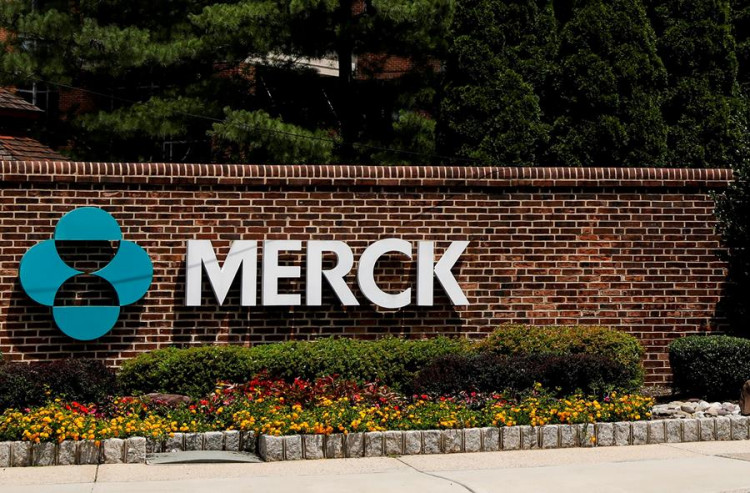Vaccine companies' stocks were down Friday after Merck announced its COVID-19 antiviral pill reduced the risk of being hospitalized or dying by around half.
While Merck's uplifting news sets the stage for turning a new chapter on the ongoing global health crisis, it sparked worries that demand for COVID-19 vaccines will drop in the upcoming months, affecting vaccine and biotech companies developing their own treatments against the disease.
The declines followed a retreat in shares of Moderna and BioNTech in New York Friday after Merck delivered the news on its oral drug.
Shanghai Fosun Pharmaceutical Group, which signed a deal to distribute Pfizer's vaccine in mainland China, fell as much as 20% in Hong Kong, leading the retreat in the region's health stocks.
Merck's experimental pill treatment is being heralded as a treatment with major upside potential in the fight against the pandemic.
"It certainly is likely that some people will take, if you will, refuge that should they become infected, a pill might be available that could help them avert serious disease," Dr. William Schaffner, a professor at Vanderbilt University Medical Center's Infectious Diseases Division, said in quotes by Market Watch.
Pharmaceutical manufacturers were generally weaker, with Wuxi Biologics and CSPC Pharmaceutical Group each shedding more than 7%, to lead the losers on the Hang Seng Index.
In Japan, JCR Pharmaceuticals, which has a deal to produce AstraZeneca Plc's jabs, and Fujifilm Holdings, which makes treatment for Avigan and reagents for COVID-19 tests, lost around 5% each.
"This is on the back of Merck's game-changer pill, which still requires emergency-use authorization from the FDA before being distributed, Justin Tang, director of Asian research at United First Partners, said.
"Investors will need to take a 'sell-first ask-later' position considering the current elevated valuation levels of vaccine stocks."
The results of the study on Merck's oral drug were so encouraging that the company and its partner, in consultation with independent trial watchdogs and the U.S. Food and Drug Administration, decided to stop enrolling patients and start the process of gaining regulatory approval.






